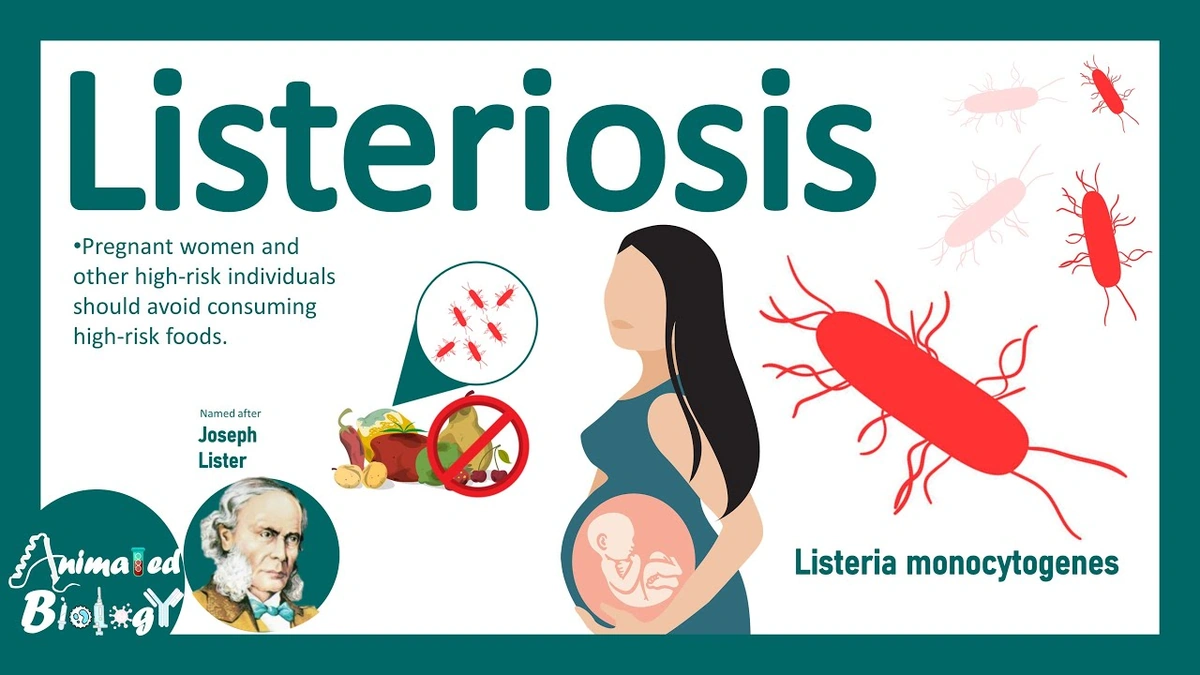Listeria . You’ve probably heard the name whispered in hushed tones after a food recall. Maybe you’ve even seen it listed as a cause for concern on your favorite cheese. But here’s the thing: listeria is more than just a passing news item. It’s a sneaky bacteria with some serious implications, and understanding it can empower you to protect yourself and your loved ones. So, let’s dive in, not as alarmists, but as informed consumers who want the real deal.
What Exactly IS Listeria, Anyway? (Beyond the Headlines)

Okay, let’s get a little science-y – but I promise to keep it brief. Listeria monocytogenes , to give it its full, fancy name, is a bacterium that can cause an infection called listeriosis. And here’s where it gets interesting. Unlike many other foodborne bugs, listeria is a real survivor. It can grow in cold temperatures – even in your refrigerator! That’s why it’s often associated with refrigerated, ready-to-eat foods. According to theCenters for Disease Control and Prevention (CDC), it’s primarily found in these types of foods.
But why does it matter? What’s the big deal? Well, listeriosis, while relatively rare, can be extremely serious, especially for certain groups of people. Which brings us to…
Who’s Most At Risk? (And Why You Should Care)
This is crucial. Listeria doesn’t affect everyone equally. While a healthy adult might experience mild, flu-like symptoms, the risks are significantly higher for:
- Pregnant women: Even if the mother only experiences mild symptoms, listeria can cause miscarriage, stillbirth, premature labor, or serious infection of the newborn. It’s a risk no one wants to take.
- Newborns: Their immune systems are still developing, making them vulnerable to severe complications.
- Adults aged 65 or older: As we age, our immune defenses naturally weaken, increasing the risk of severe illness.
- People with weakened immune systems: This includes individuals with conditions like HIV/AIDS, cancer, or those taking immunosuppressant medications.
If you fall into one of these categories, paying attention to food safetyis not just a good idea; it’s essential. But what if you’re not in a high-risk group? Should you just ignore listeria altogether? Not so fast…
Beyond the High-Risk | The Hidden Dangers and Long-Term Effects
Even if you’re not pregnant, elderly, or immunocompromised, listeria can still pack a punch. While severe illness is less likely, you could still experience symptoms like fever, muscle aches, nausea, vomiting, and diarrhea. Sounds pleasant, right? No thanks.
And here’s something that often gets overlooked: invasive listeriosis . This is when the infection spreads beyond the gut and enters the bloodstream or central nervous system. This can lead to serious complications like meningitis (inflammation of the brain and spinal cord) or sepsis (a life-threatening response to infection). Honestly, the thought makes me shudder.
While rare in healthy adults, invasive listeriosis highlights the importance of taking foodborne illness seriously, regardless of your risk level. It’s a reminder that even seemingly minor infections can have unexpected consequences.
How to Protect Yourself | Practical Tips for a Listeria-Free Kitchen
Okay, enough doom and gloom. Let’s talk about what you can actually do to minimize your risk of listeria exposure. And here’s the good news: it’s not rocket science. Simple, consistent food safety practices can go a long way.
Here’s what I always do:
- Cleanliness is key: Wash your hands thoroughly with soap and water before and after handling food. Sanitize your countertops, cutting boards, and utensils, especially after they’ve come into contact with raw meat, poultry, or seafood.
- Separate raw and cooked foods: Use separate cutting boards and utensils for raw and cooked foods to prevent cross-contamination. Store raw meat, poultry, and seafood on the bottom shelf of your refrigerator to prevent their juices from dripping onto other foods.
- Cook foods to safe temperatures: Use a food thermometer to ensure that meat, poultry, and seafood are cooked to the recommended internal temperatures. This is non-negotiable.
- Refrigerate promptly: Don’t let perishable foods sit at room temperature for more than two hours (or one hour if the temperature is above 90°F). Get those leftovers into the fridge ASAP!
- Be extra cautious with high-risk foods: If you’re in a high-risk group, consider avoiding or thoroughly cooking certain foods that are more likely to be contaminated with listeria, such as unpasteurized milk and soft cheeses, deli meats, and smoked seafood.
These steps seem basic, I know, but consistently applying them makes a huge difference. It’s about creating habits that prioritize food safety without becoming paranoid. Think of it as a form of self-care.
FAQ | Your Burning Listeria Questions Answered
What if I accidentally ate something that might be contaminated with listeria?
Don’t panic! Most healthy adults won’t experience serious symptoms. However, if you’re in a high-risk group or develop symptoms like fever, muscle aches, or gastrointestinal distress, contact your healthcare provider immediately.
How long does it take for listeriosis symptoms to appear?
Symptoms can appear anywhere from a few days to a few weeks after consuming contaminated food. This long incubation period can make it difficult to pinpoint the source of the infection.
Can listeria be treated?
Yes! Listeriosis is typically treated with antibiotics. Early diagnosis and treatment are crucial, especially for high-risk individuals.
Is it safe to eat pre-packaged salads?
Pre-packaged salads have been linked to listeria outbreaks in the past. To minimize your risk, wash the salad thoroughly before eating it, even if it’s labeled as “pre-washed.” I also like to use a salad spinner to remove excess water.
Listeria is also affected by pasteurization , and food processing .
Ultimately, understanding listeria is about empowerment. It’s about making informed choices, practicing safe food handling, and being proactive about your health. It is also important to understand the listeria outbreak .
Knowledge is power, and in this case, that power can help you stay safe and healthy. And that’s something worth knowing.
As a bonus here is an additional article regarding similar topics.




